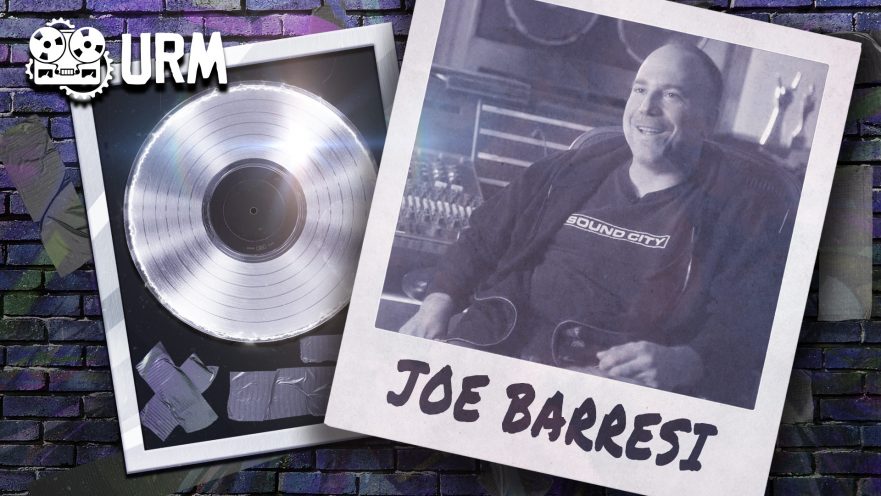| By Thomas Brett |
Introduction To The Series:
Learning How To Learn is one of the most crucial steps you can take towards becoming great at pretty much anything – And what better place to learn than from the minds of people who have actually been doing the job successfully for years?
In this ongoing series of Blogs, we’ll explore the valuable words of wisdom bestowed upon us by some of the most sought after names in the recording studio business, and discover how you can apply this advice to your own situation.
This week, we’re diffusing some of the knowledge bombs rained down upon us by rock engineering legend: Joe Barresi.
NOTE: If you’re hoping to find some “secret mix settings” or “magic formulas” in this article then you might as well leave now… I can guarantee you that the real secrets behind each of these engineers’ success are their ears and personal tastes.
Remember:
Following the practical “workflow and decision-making” advice these guys have to offer from years of experience in the business is far more valuable than trying to copy the settings they’ve used for specific songs!
VOLUME 6: Joe Barresi
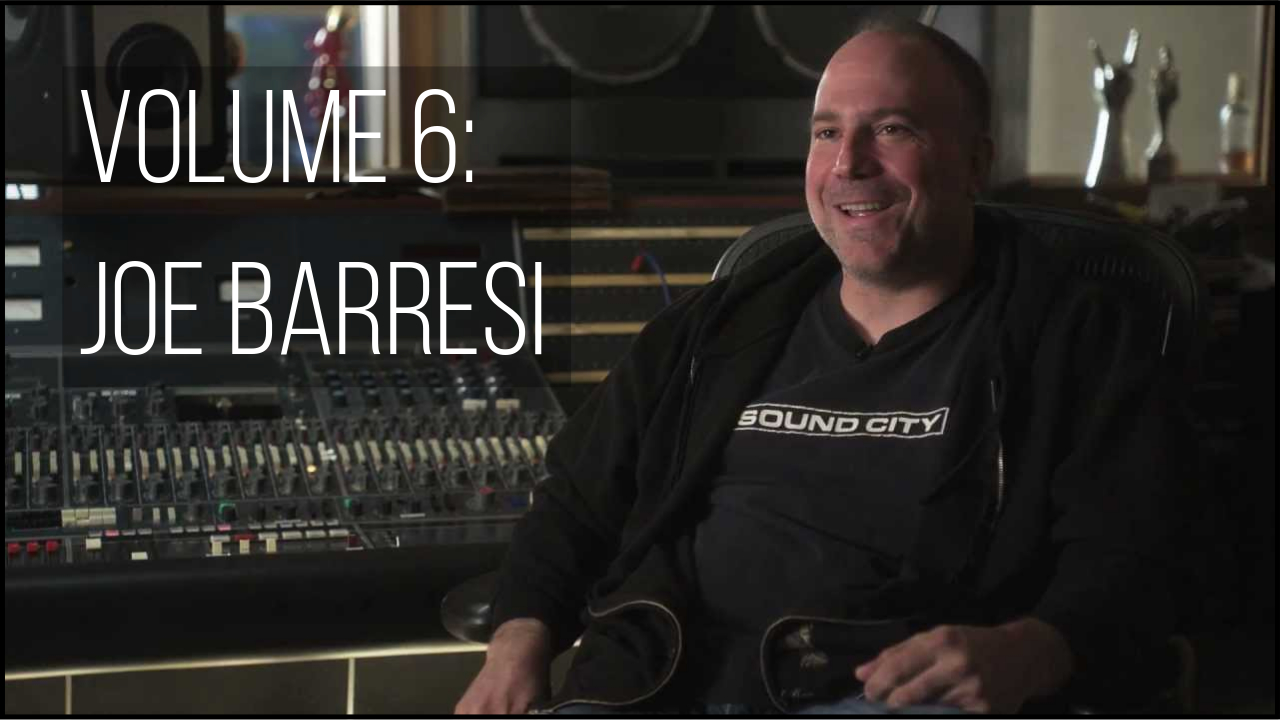
Who Is Joe Barresi?
Joe Barresi is an American engineer & producer known for his punchy mixes, crazy experiments and important role in developing the stoner rock genre.
Some of the select artists he’s worked with include:
Queens Of The Stone Age
Soundgarden
Tool
Parkway Drive
Volbeat
Chevelle
Slipknot
Avenged Sevenfold
AND MANY MORE…
Now that you know exactly who you’re dealing with, let’s cut straight to the chase!
Here Are 5 Pieces Of Incredible Audio Advice From Joe Barresi:
1 – The Devil’s In The Details
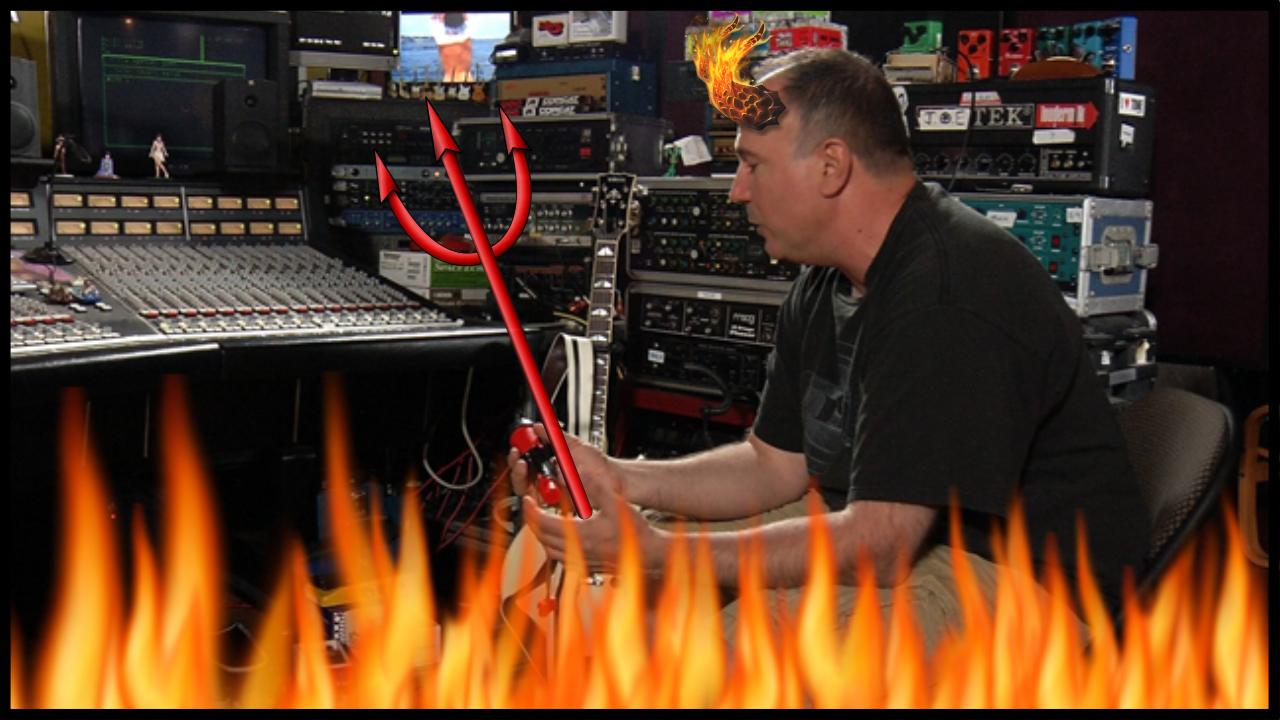
“I like to focus on things like how a part is played, which guitar is played, where you position amplifiers, the drums, & the vocalist, what console you track on, the kind of mics and mic pres you use, and so on… Stuff like that matters to me. Personality is mandatory, and every little bit helps. All of this is about the art of making records, which is getting lost at the moment.” – “Evil” Joe Barresi
Why obsess over somebody else’s sound when you can find your own?
- As music fans, it’s understandable that we often get a bit caught-up on the specific gear/techniques our musical and engineering heroes have used in their previous productions.
- Although doing research into what was used to create a specific sound can help you achieve better results in your own productions… Blindly copying exact settings doesn’t really have much to do with creativity.
- Making decisions on a case-by-case basis and allowing the song/parts to dictate the sonic direction for each instrument is much more likely to produce great results than idolising some random settings you’ve jotted down from a “making-of” documentary.
- The more I produce and mix, the more I realise that you can’t rely solely on presets or settings which others have used when shaping a sound. Why? Because there are simply too many variables involved in the music creation process for this approach to make sense!
- Being able to experiment and stumble across cool sounds is one of the most rewarding things about music production. So why rob yourself of having fun by turning the process into a formula?
2 – Feel Vs Perfection?
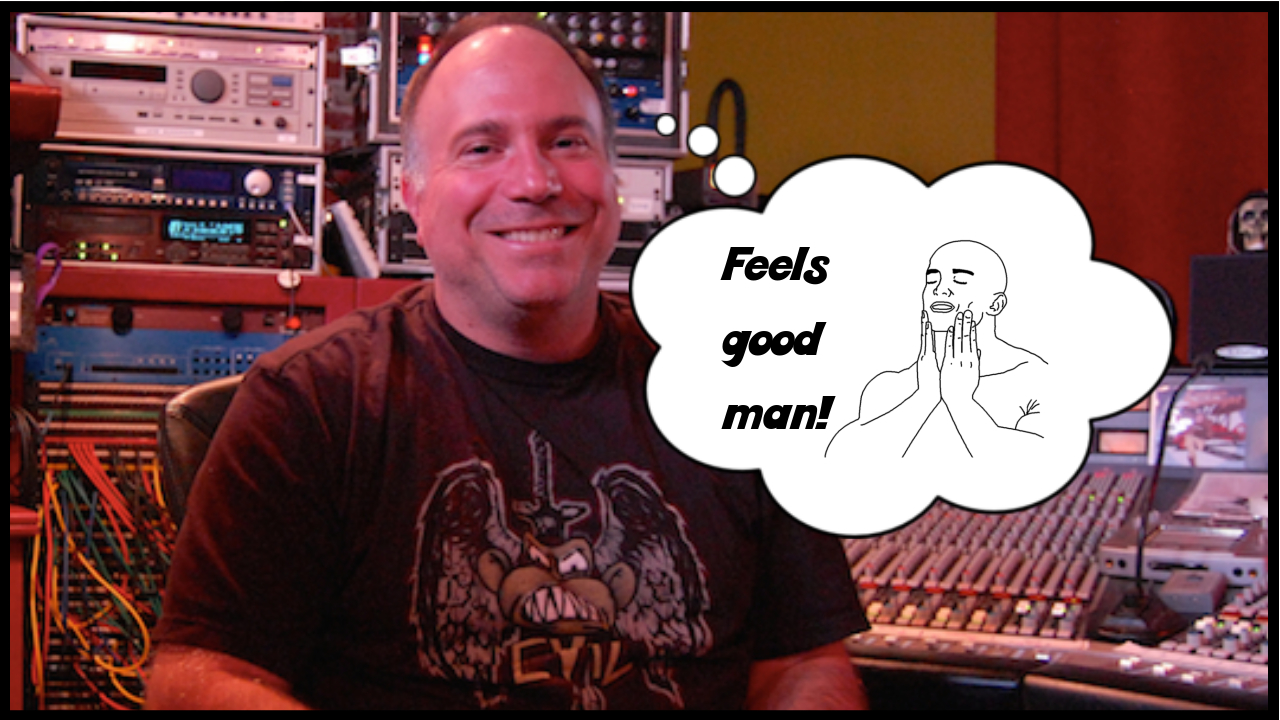
“Feel is definitely what people pick up on. When everything is perfect, then there is no character. These days with the ease of digital editing and manipulation, it is easy to fix everything such as bad sounds, unsteady meters, awful tuning, etc. We’ve put more emphasis on using our eyes and not on our ears. It’s sad…” – Joe Barresi
Hooked on a feeling…
- I think it’s safe to say that 90% of listeners have absolutely no clue as to what really goes into recording or mixing a record. The truth is, those minuscule details we over-emphasise on a daily basis… They wouldn’t be able to pinpoint them to save their lives.
- We often like to over-analyse the simple act of listening to music due to our “superior understanding” of how music works as engineers, while in reality, the factors that determine whether somebody will like a song or not can be as basic as: “Does it make me feel something?”.
- This being the case, why not re-evaluate your priorities and spend more time nailing the thing they’ll be able to appreciate the most: A good song which feels great.
- Don’t get me wrong… The fact that a song is technically perfect doesn’t always mean that it has no feel. This fact is proven time and time again by bands such as Periphery, Gojira and The Devin Townsend Project, who put just as much importance into writing powerful songs as they do capturing them in the studio.
- My main point is that you can’t rely on technical perfection alone to carry a song. Remember: Nobody cares if your song has been tuned and edited to perfection if the riff, chorus or groove is dead.
3 – Preserving A Band’s/Musician’s “Sound”
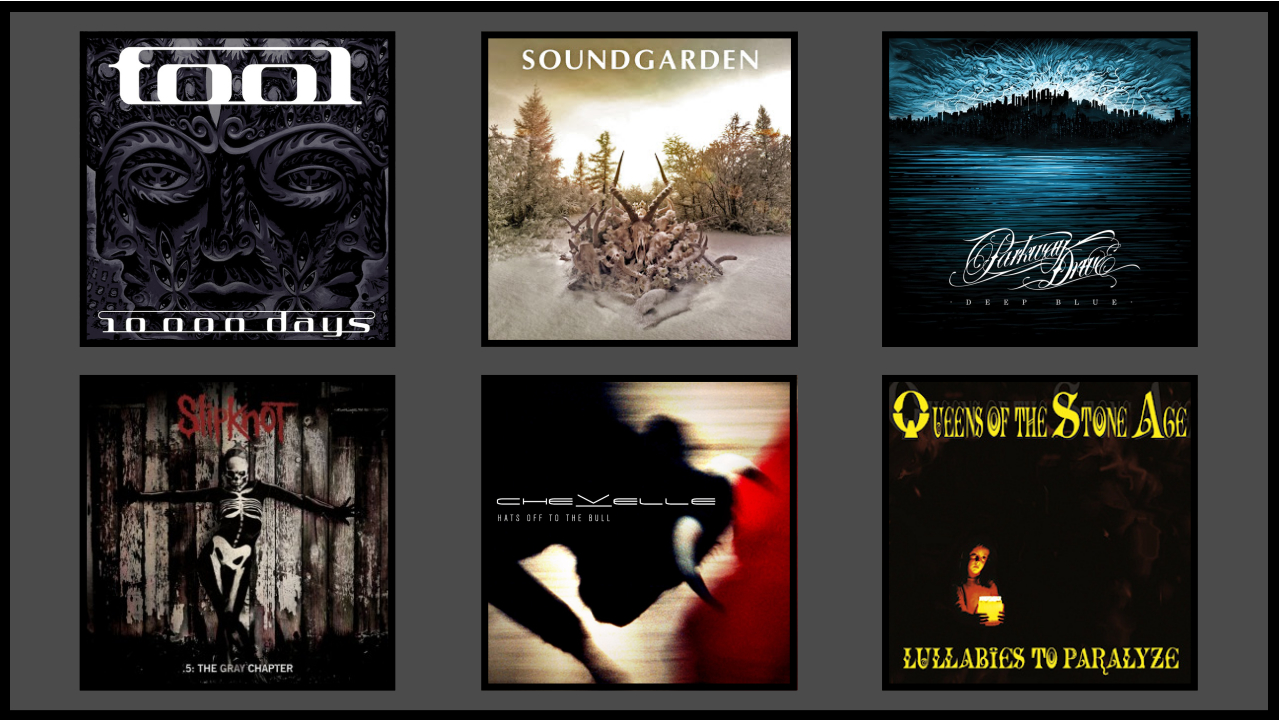
“You, as a player, have your own style and sound. If you’re a Les Paul player, I am not going to make you play my Strat. Rather than me going and changing your amp to some completely foreign thing, I’ll take your sound and add some of my sound into it. Maybe your Strat isn’t great and doesn’t stay in tune, OK, let’s get your Strat set up first because you are used to playing it. Your muscle memory is always the most important thing in the studio. You don’t just want to be forced into playing something that is totally foreign. That’s just bizarre to me. In general, I’m not going to try and change too much. I am just going to augment.” – Joe Barresi
Don’t replace their sound, embrace and build on it!
- Imagine the following scenario: Slash comes into your studio wanting to record a new album. Would you try to make him record with a Kiesel guitar through a Peavey 5150 (aka “Your Sound”)??? Or would you simply let him bring in his favourite Les Paul/Marshall combination and stick some microphones in-front of it?
- My opinion? The latter approach makes A LOT more sense…
- Although we may not come across guitarists with as recognisable of a sound as Slash on a daily basis, the basic concept I’ve outlined above applies to pretty much anybody you’ll work with in the studio (unless they’re absolutely clueless).
- In general, most guitarists will have a certain preference and unique quality when it comes to tone. Given the fact that each player’s “sound” is usually formed from a complex combination of their musical influences, personal tastes, and past experiences… Is it really fair to just scrap it completely???
- In my experience, people tend to appreciate it when you show interest in their preferences rather than just overruling them. This can even be something as simple as letting them use their favourite overdrive pedal… And just tweaking it slightly to better fit your own preferences.
- At the end of the day, this doesn’t mean that you should embrace anything which you think is low-quality. It’s your job as an engineer/producer to make sure things are as good as they can possibly be. So always do whatever you feel is in the best interest of the project.
A quick conclusion on this subject: The distinguishable differences between guitarists are what make them recognisable.
NOTE: In some cases, bands will want to work with you because of the fact that you have a recognisable sound of your own. Although this may seem like the best situation for an engineer to be in, doing the same thing every single day is bound to get boring at some point (in my personal opinion). Ultimately, how you go about producing is completely up to you… Just make sure you’re not pigeonholing yourself into a corner while doing so.
4 – How Loud Is Too Loud?
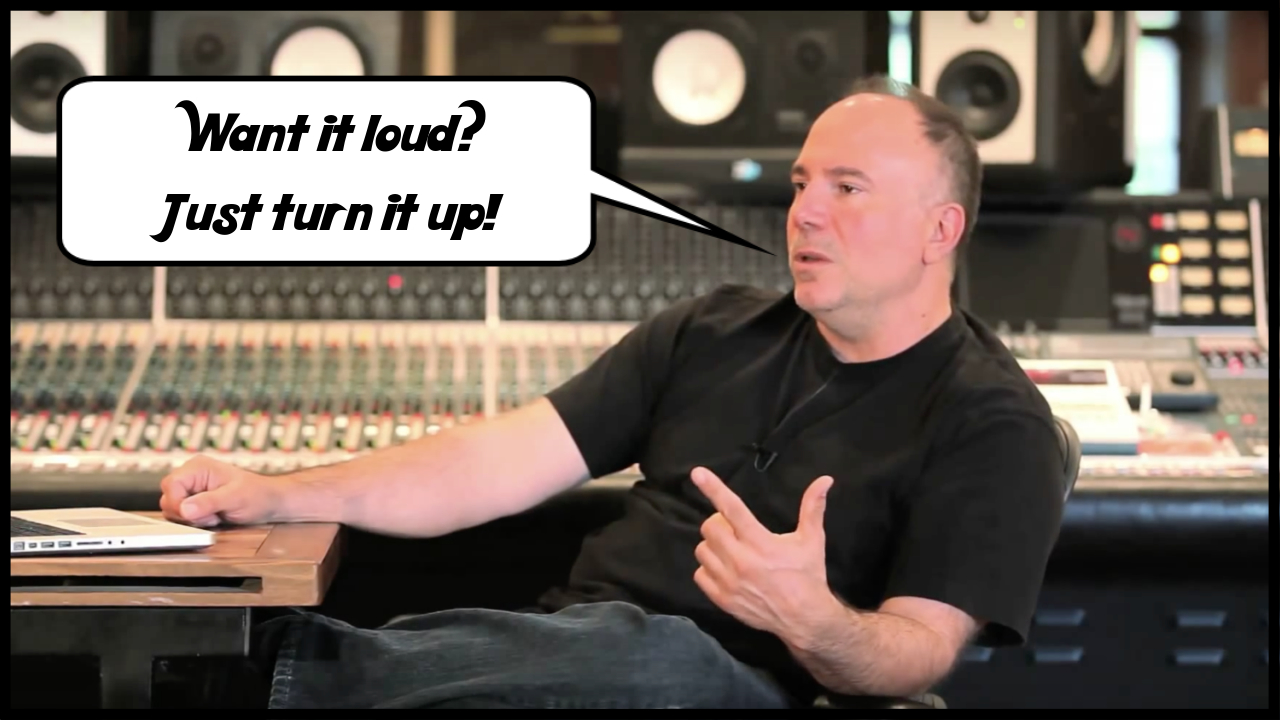
“I think it is ridiculous personally. I can tell you some great stories involving A & R guys, band members and managers that think a mix sucks until they hear it mastered ie: louder than hell. They can’t just use the volume knob on their stereo! – It has to be as hot out of the gate to be judged as good… The question is how much more louder can it be, and the answer is none, “none more louder”, to quote Spinal Tap.” – Joe Barresi
Loudness for the sake of loudness…
- I can’t tell you how many times in the past I’ve finished a mix which I thought was great… Only to ruin it while trying to reach “commercial” levels of loudness.
- The most annoying thing I realise when I think back on those times? There wasn’t even a valid need for them to be so loud in the first place!
- Regardless of how good you are at the maximisation process, it’s always important to weigh up what ACTUALLY needs doing in the mastering stage, and in some cases, whether there even needs to be a mastering stage…
- A great little story I remind myself of when it comes to mastering is the one regarding Andrew Scheps’ (Adele, Black Sabbath, Audioslave) switch from analog mixing to in-the-box mixing:
“One of my ITB mixes was mastered at Abbey Road, and they have amazing gear there and the guys are great – and when I sent the mix I warned them “I don’t know guys, let me know if you hear any problems,” and when the A&R guy walked in the room 30 minutes after mastering began the engineer said “I mean you paid for another hour so we can run it through some gear if you want but I’ve already done a flat transfer of the mix because it’s done – there was nothing to change.” – Andrew Scheps
- Although there are very few people who can churn out mixes as amazing as Andrew’s on a daily basis, the point of the story remains valid: A mix which is good in the first place might not even need mastering!
Short Conclusion: I’m not telling you to disregard mastering entirely, as most of us can still use an expert’s finishing touch on our mixes every now and then. My main point is to aim for a goal where your mixes are solid enough to stand on their own without having to rely on a final mastering stage to win people over.
5 – Conclusion: Don’t Let The Price Dictate The Quality!
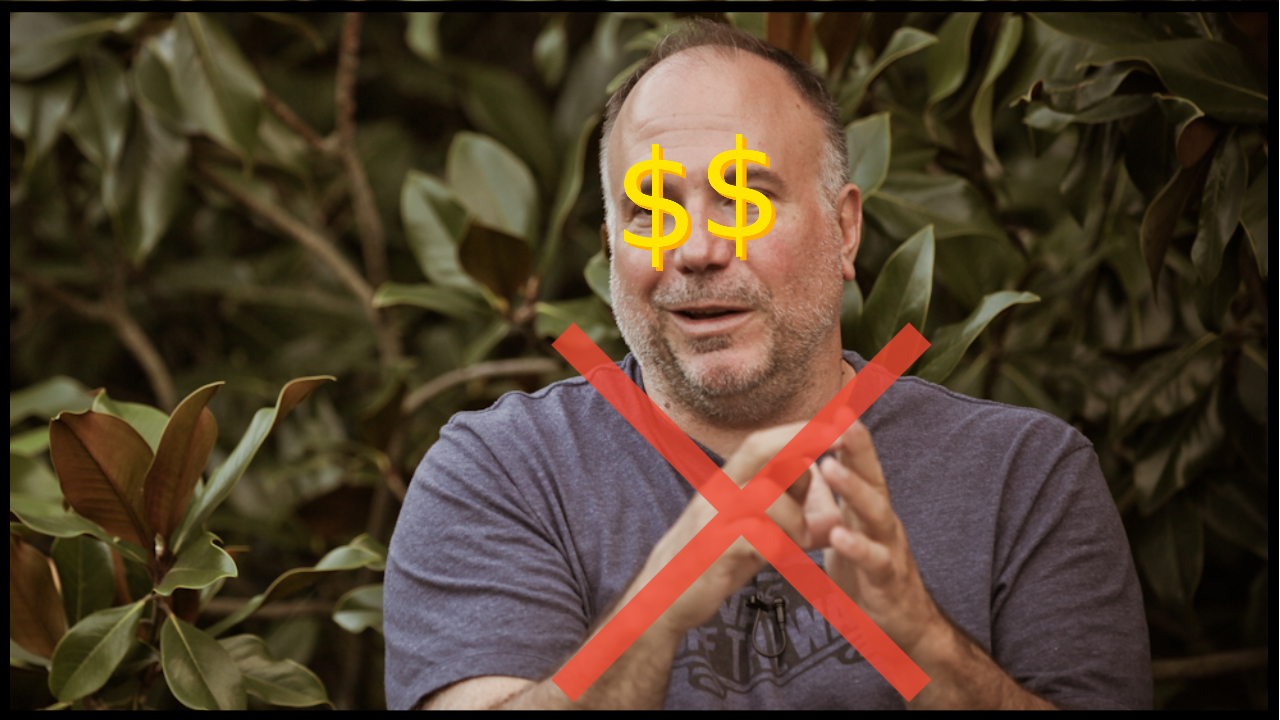
“I have a certain criteria for myself that I’ve learned by working on records which I also preach to other people. Mainly, if you agree to do a job, always give 100%. If I’m getting paid a dollar or a million dollars, you’re still going to get 100% of me because I agreed to do it.”
“I learned that a long time ago because I recommended a friend for a gig and he wasn’t getting his day rate. I remember visiting him at the studio, being excited that I could hook my friend up with a gig and I knew he was going to be able to do the job well. He was hanging out in the lounge, watching TV and I was like, “What the hell are you doing dude?” He was like, “Well, you know I’m only getting so and so, so I’m only doing half the work. Half the money, half the work.” It made me look like an asshole and made me realize, “This is just stupid.” If you agree to do something, you do it.” – Joe Barresi
Going for gold, or for going greatness?
- A common trait I’ve noticed in pretty much all of the A-grade engineers I’ve studied and adored over the years is their true passion for making great art.
- Sure, there’s a lot of money involved in big studios, but it’s not always the primary driving force behind their work. Just watch/read any interview with Joe and you’ll witness first hand that he really puts his heart into everything he does, while caring first & foremost about serving the song. (It comes across in his productions too!)
- If someone comes to you with a low budget it’s at your own discretion as to whether to take it on or not. But in the case that you do accept it… You’d better make sure you’re paying the same amount of attention to detail and respect to the project that you would a big-buck endeavour.
- I know I’ve mentioned the following point before in previous articles, but I’ll bring it up again because of how important I think it is: People can gauge your intentions better than you think, and they’ll sense if you truly have their best interests in mind.
- No matter which stage of the studio food-chain you’re currently operating within, don’t forget about the main reasons which most likely got you into music in the first place: The love of great music, and the desire to make great music.
- Keep these things in mind with everything you do, regardless of how much you’re getting paid. I promise both you, and your customers will be happier for it!
To sum this up, here’s a relevant quote from Charlie And The Chocolate Factory:
“There’s plenty of money out there. They print more every day. Only a dummy would give this up for something as common as money. Are you a dummy?”
Final Words:
This concludes “Learn From The Legends – Volume 6: Joe Barresi.” I hope that this article has given you some new ideas to try out during your next project. Be sure to comment below if any of this information has helped you out, or if you have any questions.
Stay tuned for more production/mixing related articles in the not-so-distant future!
Thomas Brett is a producer, mixing engineer and songwriter at Brett Brothers recording studio in the UK. Check out the Brett Brothers studio website for more information and articles on all things mixing www.brettbrothersstudio.com
Read Learn From The Legends – Volume 1: Chris Lord-Alge here!
Read Learn From The Legends – Volume 2: Randy Staub here!
Read Learn From The Legends – Volume 3: Andy Wallace here!
Read Learn From The Legends – Volume 4: Andrew Scheps here!
Read Learn From The Legends – Volume 5: Jacquire King here!
Want mix tips from Thomas Brett? Read them here!
 Nail The Mix is our online mixing school that gives you REAL multi-tracks from REAL bands, plus a mixing class from the producer who recorded it. Past guests include Periphery, Chelsea Grin, Machine Head and State Champs. Join now for instant access!
Nail The Mix is our online mixing school that gives you REAL multi-tracks from REAL bands, plus a mixing class from the producer who recorded it. Past guests include Periphery, Chelsea Grin, Machine Head and State Champs. Join now for instant access!

